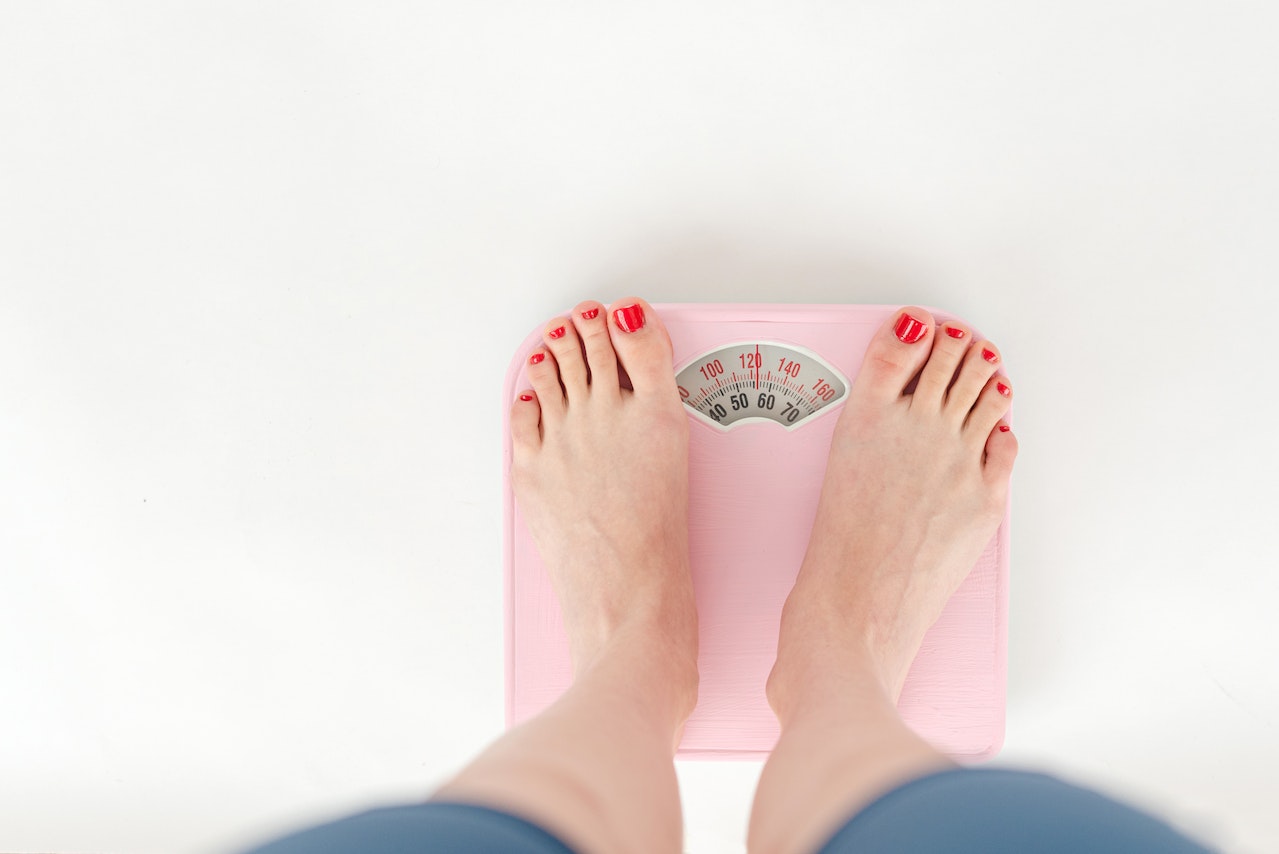It is well-established that getting a good night’s sleep is crucial for physical and mental health. However, did you know there is a strong link between sleep and weight gain? In this article, we’ll explore how sleep can impact our weight and what we can do to promote healthy sleep habits.
Discover the link between sleep and weight gain and how promoting healthy sleep habits can improve our overall well-being.
In this article:
- How sleep impacts weight gain
- Importance of sleep for physical and mental health
- Tips for promoting healthy sleep habits
HOW SLEEP IMPACTS WEIGHT GAIN

Sleep and weight are closely related, and a good night’s sleep is crucial for maintaining a healthy weight. Poor sleep habits lead to weight gain in several ways, so it is essential to understand the link between sleep and weight to promote healthy sleep habits.
One way that lack of sleep impacts weight gain is through hormonal changes. When we don’t sleep enough, our body releases more of the hormone ghrelin, which stimulates hunger. Research shows that this can be the cause of overeating and weight gain.
Sleep can also impact insulin sensitivity and glucose regulation. Studies show that sleep deprivation leads to decreased insulin sensitivity, which increases the risk of developing type 2 diabetes and contributes to weight gain.
Another factor is physical activity levels. When we don’t get enough sleep, we tend to feel tired and lack energy, making exercise difficult. In turn, a lack of physical activity can lead to weight gain. In addition, sleep-deprived individuals often turn to unhealthy foods, often high in calories, to boost their energy levels.
Adequate sleep can help to improve emotional well-being and decision-making, leading to healthier food choices and more physical activities. Therefore, ensure you get enough sleep to achieve and maintain your desired body weight. If you’re wondering exactly how many hours of sleep you need and whether you should exercise or run if you’ve had little sleep the night before, click here to read our article.
IMPORTANCE OF SLEEP FOR PHYSICAL AND MENTAL HEALTH

Sleep is not just a basic necessity. It is also a source of immense joy and rejuvenation for our bodies and minds. It’s a time when our bodies can repair, recharge, and refresh themselves, preparing us for the next day’s challenges. When we get enough sleep, we wake up refreshed and start the day with energy and enthusiasm. So it is essential to prioritize sleep and make it a central part of our healthy lifestyle.
Physical health benefits of sleep
- Regulating hormones and metabolism: Sleep is crucial in regulating hormones, including insulin and cortisol, essential for metabolism and weight management.
- Supporting the immune system: Sleep helps to boost the immune system by reducing the risk of illness and infection. Research has shown that individuals who don’t get enough sleep are more susceptible to colds, flu, and other diseases.
- Reducing the risk of chronic health conditions: Sleep deprivation can cause many chronic health conditions, including obesity, heart disease, and type 2 diabetes.
By prioritizing sleep and making it a central part of our healthy lifestyle, we can reap the countless physical health benefits of adequate rest. From supporting our immune system to regulating our hormones, sleep can transform our physical health and improve our quality of life. So, let’s embrace the magic of sleep and allow it to work wonders on our physical wellness.
Mental health benefits of sleep
- Emotional Well-Being: Sleep is critical for emotional well-being, helping to reduce stress, anxiety, and depression.
- Improved Cognitive Function: Sleep is essential for cognitive function, including memory, decision-making abilities, and attention. Adequate sleep can help to improve focus, productivity, and overall cognitive performance.
- Reduced Risk of Accidents: Sleep deprivation can impair judgment and reaction times, increasing the risk of accidents and injuries.
- Improved Mood: Sleep has a positive impact on mood, helping to reduce feelings of irritability, anger, and frustration.
Now that you know more about the link between sleep and weight gain and the impact sleep has on our overall physical and mental health, you know how important it is to ensure you get enough sleep every night. Getting enough sleep is not always easy, whether you often have insomnia or simply because your daily obligations do not allow it. Fortunately, we have some simple tips to help you quickly improve your sleeping habits.
TIPS FOR PROMOTING HEALTHY SLEEP HABITS

By implementing the tips below and prioritizing sleep, you can improve your sleep habits and enjoy the benefits of adequate rest.
Set a consistent sleep schedule
Having a consistent sleep schedule is one of the great things you can do to improve the quality of your sleep. Going to bed and waking up at a set time each day will regulate your body’s internal clock and promote more restful sleep. This can be especially helpful for those who struggle with insomnia or other sleep disorders.
To establish a consistent sleep schedule, stick to a routine as much as possible. Choose a bedtime that allows you to get 7 to 9 hours of sleep, and make sure to wake up at the same time every day, even on weekends. It may also be helpful to avoid napping during the day and avoid participating in other activities that disrupt your sleep schedule.
Keep a sleep diary
Keeping a sleep diary can be a helpful tool for improving the quality of your sleep. This simple log can help you track your sleep patterns and identify factors affecting your sleep quality, such as stress, caffeine consumption, or changes in your sleep schedule. By recording this information, you can better understand your sleep habits and make changes to improve the quality of your sleep.
To start a sleep diary, write down the exact time you go to bed and the time you get up each day. You can also include information about your sleep quality, how often you wake up during the night, and any other factors that may impact your sleep.
Avoid large meals before bedtime
Eating large meals before bedtime can interfere with sleep and lead to discomfort and indigestion. Avoid heavy meals in the evening and limit your intake of caffeine, alcohol, and other stimulants that can disrupt your sleep.
Instead, try eating a light, healthy snack or meal several hours before bedtime. Some good options include a banana, oatmeal, or a turkey sandwich.
Avoid stressful activities before bedtime
Stressful activities before bedtime can interfere with your sleep and make it more difficult to fall asleep. Avoid engaging in stressful activities such as working, worrying, or arguments in the hours leading up to bedtime.
Instead, create a relaxing bedtime ritual. You can have a more peaceful and restful sleep environment by focusing on relaxation and stress relief.
Create a relaxing bedtime ritual
A calming bedtime ritual can help you unwind and de-stress after a long day. This might include a relaxing bath, listening to soothing music, reading a book, or drinking a warm cup of valerian root tea.
A relaxing bedtime ritual can become a comforting and enjoyable part of your daily routine, helping you establish a positive sleep cycle and a healthy sleep-wake rhythm.
_____
The link between sleep and weight gain is undeniable. Lack of sleep can profoundly affect our physical and mental health, leading to weight gain, decreased energy levels, and other negative consequences. So start making healthy sleep a part of your routine today, and your body and mind will thank you.






